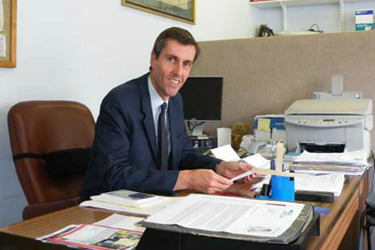Andrew Selous has been confirmed as the Minister who will take on responsibility for youth justice.
Andrew Selous will be responsible for Youth Justice, Rehabilitation, Prisons, and Probation at the Ministry of Justice. The Conservative MP for South West Bedfordshire was one of the final Junior Ministers to be appointed as part of the Cabinet reshuffle when he was announced as Minister for prisons and rehabilitation on Wednesday afternoon. Today it was confirmed that he will be responsible for Youth Justice, alongside his other responsibilities of rehabilitation, prisons, and probation.
Selous was previously parliamentary Private Secretary to Work and Pensions Secretary Ian Duncan-Smith.  He becomes the third Youth Justice Minister of the current parliament, replacing Jeremy Wright who was made Attorney General in the reshuffle. Selous said: “I am very pleased and honoured to be given this appointment by the Prime Minister and look forward to working in the Ministry of Justice as parliamentary under Secretary of State.”
He becomes the third Youth Justice Minister of the current parliament, replacing Jeremy Wright who was made Attorney General in the reshuffle. Selous said: “I am very pleased and honoured to be given this appointment by the Prime Minister and look forward to working in the Ministry of Justice as parliamentary under Secretary of State.”
Selous, who was first elected in 2001, has previously spoken on the issue of Youth Justice in parliament. At Prime Minister’s questions in 2004 he told Tony Blair that youth services are vital to tackling antisocial behaviour. He said he opposed the then Labour government’s “agenda of forcing learning outcomes on the youth service”.
“Young people work hard all week, and often at weekends too,” he said.“What they want is somewhere to go and relax and have fun, rather than being forced to achieve a learning outcome on a Friday or Saturday night.” More recently, in January this year, he referred to Youth Justice Board statistics that 70 per cent of children and young people in custody have an absent father as evidence that government should make efforts to strengthen relationships between couples. He cited Safe Families for Children, a project providing early respite care for children whose parents face difficulties before the situation gets to the fostering stage, as an example of early intervention projects that could be implemented nationally to improve outcomes.
By Neil Puffett, Friday 18 July 2014


